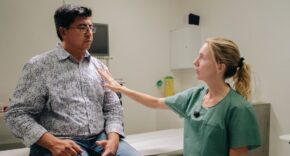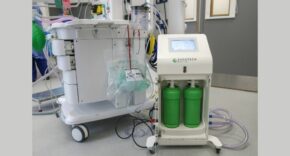
The lack of readily available language translation solutions is resulting in almost a working week being added to healthcare waiting times, while staff are losing a working day every month trying to overcome language barriers between them and patients.
In the latest report of 1,000 UK healthcare workers more than a fifth are facing language difficulties with colleagues and patients every week – one in 10 said it occurred daily. Almost half of healthcare workers also disclosed that managing language translation with patients can present worrying safeguarding issues.
The findings come as The TaxPayers’ Alliance (TPA) revealed a staggering £113,974,561 was spent on interpreters and translation services in healthcare between 2019-20 and 2021-22.
The GMC (General Medical Council) guidance states that all possible efforts must be made to ensure effective communication with patients. This includes arrangements to meet patients’ communication needs in languages other than English, which has huge cost implications.
The latest findings have been revealed in a new report commissioned by Pocketalk, following research conducted in 2021 with healthcare workers which also highlighted the impact on workers’ ability to carry out their care. In 2021 workers admitted that there had been a time during their career that a language barrier had prevented, or delayed them, from giving the best care they could.
Jessica O’Dwyer, general manager at Pocketalk, comments: “Within healthcare, clear and empathetic communication is crucial. Being able to act quickly, explaining and obtaining the appropriate consent, delivering sensitive and difficult diagnosis is heavily reliant on the communication between the medical professional and the patient and their families. Language barriers in this sector must be addressed but in a way that doesn’t add to an already very heavy workload for workers.
“Our research shows that overcoming language barriers is one of many things being added to an already extensive workload, and it is something that needs better support.
“The industrial action we’ve seen in the last few months shows how critical it is that we look at ways of supporting the healthcare system as efficiently as we can, and technology plays a role here. There is a case here for UK trusts to explore mobile technology solutions which would cut the millions of pounds being spent on language translation. There is also an opportunity for quick, easy-to-use and GDPR compliant technology to attract non-English speaking workers, which would help overcome the talent shortages and poor retention that healthcare is experiencing.”
Latest ONS data show that over a million people in the UK do not speak English well or at all as Romanian entered the top 10 most spoken language in the UK, over the past decade. Last year, Sajid Javid, Secretary of State for Health and Social Care, announced that government was embarking on a transformative programme of reforms that will make sure the NHS is set up to overcome today’s challenges with the long-term sustainability of health and social care being dependent on having the right digital foundations in place.
Pocketalk is calling on healthcare providers, particularly in areas where communities do not speak any English at all, to get in touch for support.











